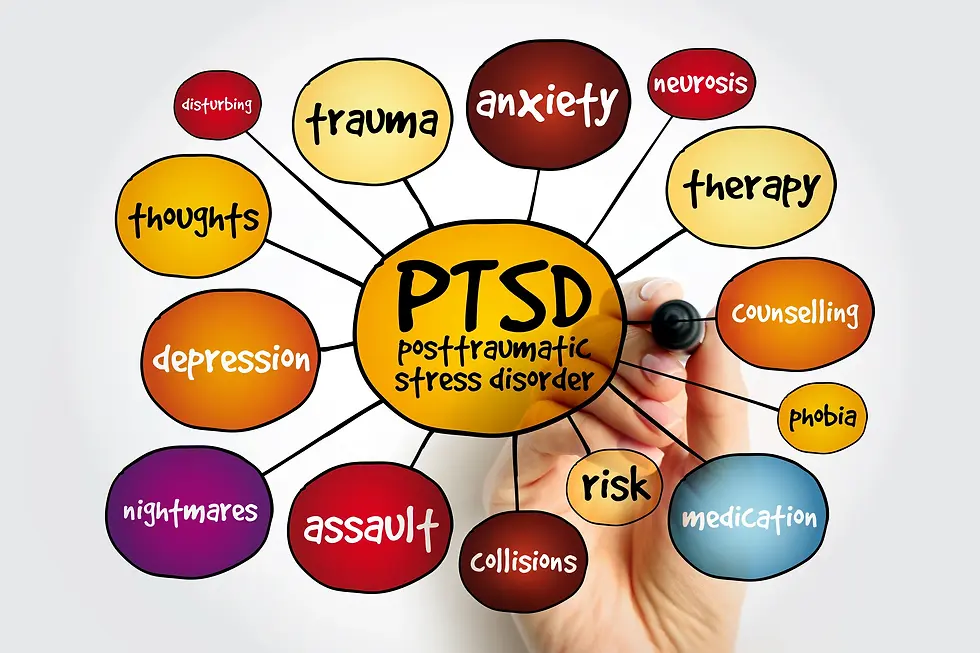Trauma & Its Impacts On The Brain
- anewdawntherapybel
- Mar 9, 2025
- 1 min read
Updated: Mar 11, 2025
Trauma can profoundly affect the brain, changing its structure and function. This can lead to long-term mental and physical health challenges.
Trauma's Brain Impact #1: Changes to the Amygdala
The amygdala , responsible for fear and anxiety, can become hyperactive after trauma, leading to heightened emotional responses.
Trauma's Brain Impact #2: Hippocampus Shrinkage
The hippocampus, vital for memory and learning, can shrink in size due to trauma, affecting memory formation and recall.
Trauma's Brain Impact #3 Prefrontal Cortex Impact
The prefrontal cortex, responsible for executive function, can be affected by trauma, leading to difficulty with planning, decision-making and impulse control.
Trauma's Brain Impact #4 Stress Response Shift
Trauma can trigger a heightened stress response, leading to chronic anxiety, hypervigilance and difficulty regulating emotions.
The Brain's Plasticity After Trauma
The brain's remarkable plasticity allows it to heal and adapt after trauma with therapy and support, recovery is possible.
Trauma leaves a lasting impact on the brain, altering its structure and function, impacting mental and physical health. However, the brain's plasticity offers hope for healing and recovery with additional support.
If you're like to talk about support options that may be right for you, you can schedule a free consultation here.




Comments